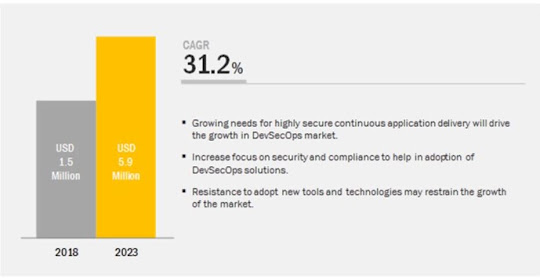DevSecOps: Bridging Development and Security for Efficient and Secure Software Delivery
Introduction:
In the fast-paced world of software development, terms like DevOps, SecOps, and DevSecOps are often used. But what do they really mean and how do they differ? In this guide, we will explore these concepts in a simplified manner, providing examples and highlighting their benefits. By the end, you'll have a clear understanding of how these methodologies can help streamline development processes and enhance security in the digital landscape.
Translation : English - Hindi - Sanskrit
DevSecOps: विकेंद्रीकृत अनुप्रयोग - विकासस्य च सुरक्षायाः सम्बद्धः (Vikendrīkṛta Anuprayōga - Vikāsyā cha Surakṣāyāḥ Sambaddhaḥ)
DevOps: Accelerating Software Delivery and Performance
DevOps is a methodology that aims to improve the speed and efficiency of software development. By emphasizing collaboration, automation, and intelligence, DevOps enables developers to deliver high-quality software at a faster pace. For instance, using automated tools, a team can quickly build, test, and deploy new features, resulting in more frequent updates for users.
Example: Imagine a team working on a mobile app. With DevOps, they can automate the process of building, testing, and deploying the app, reducing manual effort and shortening the time it takes to deliver updates to users.
SecOps: Prioritizing Security throughout Development
SecOps focuses on integrating security practices into the software development lifecycle. It aims to increase cybersecurity and ensure that security is an ongoing and dynamic process. By spreading the responsibility for security across all stakeholders, SecOps reduces vulnerabilities and strengthens overall security measures.
Example: When developing a web application, SecOps involves regular security audits, implementing secure coding practices, and using tools to detect and mitigate potential vulnerabilities. This proactive approach minimizes the risk of security breaches.
DevSecOps: Uniting Development and Security
DevSecOps combines the best of both DevOps and SecOps, creating a holistic approach to software development and security. It emphasizes integrating security practices early on and automating security processes. By doing so, developers can address security issues in real-time and ensure that software is secure from the outset.
Example: In a DevSecOps environment, developers incorporate security measures during coding, such as using encryption or access controls. Regular code scanning and vulnerability assessments help identify and resolve security issues promptly.
DevSecOps Benefits:
- Cost Reduction: Implementing security measures earlier in the development cycle can lead to cost reduction. By addressing security issues early on, you can prevent costly security breaches or the need for extensive security patches later. This approach saves resources and minimizes potential financial losses.
- Automated Security: DevSecOps promotes the automation of security processes. This automation allows developers to integrate security measures seamlessly into their workflows. By automating security tasks, organizations can streamline their processes, reduce human error, and optimize resource allocation for IT security teams.
- Better Understanding of Security: DevSecOps encourages developers to become more familiar with security practices. By integrating security into regular DevOps practices, developers gain a deeper understanding of potential security risks and how to mitigate them. This leads to the production of more secure code and reduces the need for subsequent corrections or fixes.
- Faster Deployment with Enhanced Security: DevSecOps ensures that security is not an afterthought. Instead of addressing security concerns near the end of the development process, security issues are identified and resolved in real-time. This allows for quicker deployment of software while maintaining a high level of security.
Skills required to be a DevSecOps Engineer:
- Strong Understanding of DevOps: DevSecOps engineers should have a solid foundation in DevOps principles and practices. This includes knowledge of continuous integration/continuous delivery (CI/CD) pipelines, automation tools, version control systems, and infrastructure-as-code (IaC) concepts.
- Security Expertise: In-depth knowledge of security principles, best practices, and industry standards is essential. Understand concepts such as secure coding, vulnerability management, threat modeling, penetration testing, risk assessment, and compliance requirements (e.g., GDPR, HIPAA).
- Cloud and Infrastructure Security: Familiarity with cloud platforms like AWS, Azure, or GCP is crucial. You should understand how to secure cloud resources, configure access controls, manage identities and permissions, and implement network security measures. Additionally, knowledge of containerization technologies (e.g., Docker, Kubernetes) and securing containerized environments is beneficial.
- Automation and Tooling: Proficiency in scripting and automation using languages like Python, Shell, or PowerShell is valuable. Experience with configuration management tools (e.g., Ansible, Chef, Puppet) and security-related tools (e.g., vulnerability scanners, code analysis tools, security monitoring solutions) is advantageous.
- Collaboration and Communication: DevSecOps engineers work closely with development, operations, and security teams. Strong collaboration, communication, and interpersonal skills are essential to effectively convey security requirements, bridge gaps between teams, and promote a security-focused culture.
- Problem-Solving and Analytical Thinking: DevSecOps engineers need to analyze complex problems, identify security risks, and devise effective solutions. Strong problem-solving and analytical thinking skills enable them to assess the security implications of different scenarios and make informed decisions.
- Continuous Learning: The cybersecurity landscape is ever-evolving, so a willingness to stay updated with the latest security trends, emerging threats, and industry advancements is crucial. Engage in continuous learning, attend conferences, participate in security communities, and pursue relevant certifications (e.g., Certified DevSecOps Professional, Certified Cloud Security Professional).
- Flexibility and Adaptability: DevSecOps engineers often work in dynamic and fast-paced environments. Being adaptable, flexible, and able to quickly adjust to changing priorities and technologies is important.
Job Opportunity
By following DevSecOps, organizations can achieve stable and secure codebases, strike a balance between development and security priorities, and foster collaboration between different teams.
DevSecOps Growing very fast in IT industry
Credit for research : DevOpsMarket
Conclusion:
DevOps, SecOps, and DevSecOps are methodologies that enhance software development processes and improve security. DevSecOps combines development and security, leading to cost reduction, automated security, better understanding of security, and faster deployment with enhanced security. To be a DevSecOps engineer, one needs skills in DevOps, security expertise, cloud and infrastructure security, automation, collaboration, problem-solving, continuous learning, and adaptability. Embracing DevSecOps is crucial for organizations to achieve stable and secure codebases and foster collaboration among teams in the rapidly evolving IT industry.



No comments:
Post a Comment